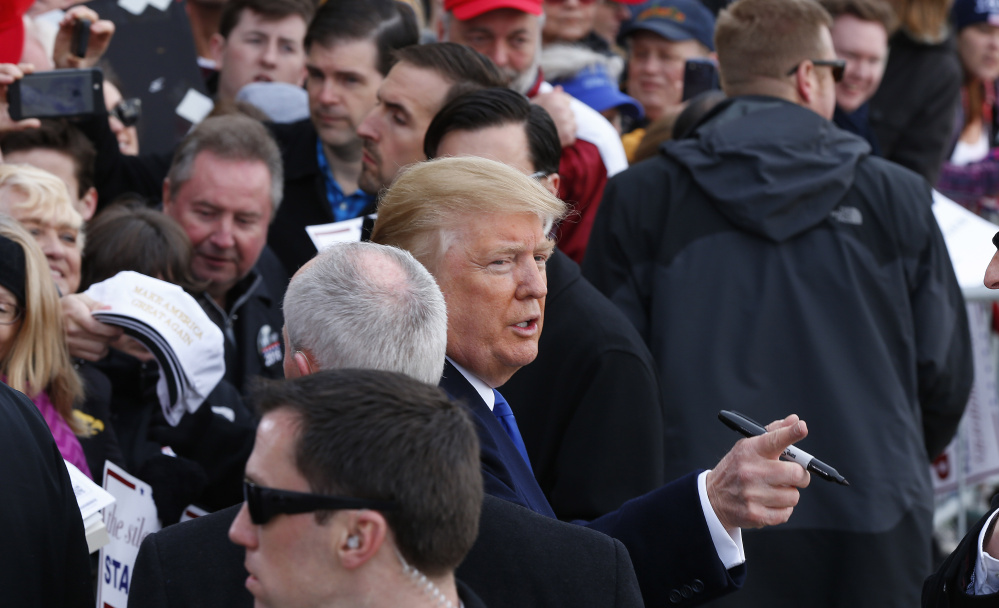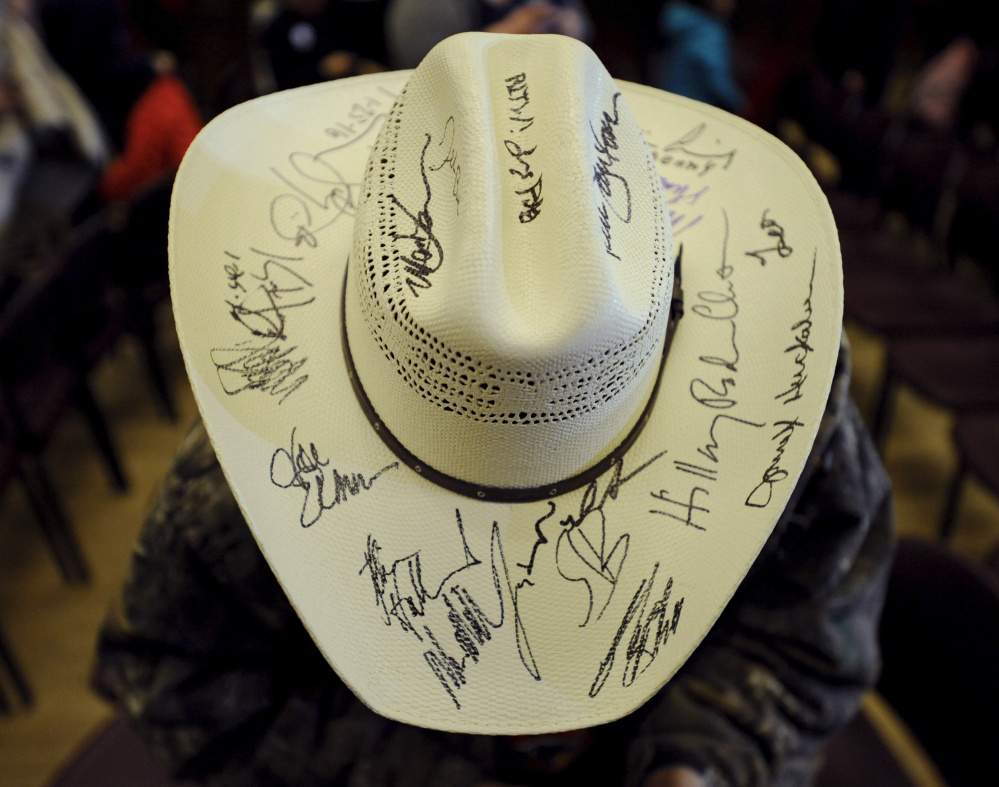DES MOINES, Iowa — On Monday at 7 p.m. local time, Iowa voters will begin the process of picking the country’s next president at a series of nearly 1,700 gatherings in meeting halls, high school gymnasiums and community centers stretching from the Missouri to the Mississippi rivers.
The Iowa caucuses will go a long way toward shaping the presidential race, even though the results have little bearing on the delegates that Iowa will send to the national nominating conventions.
Q. What is a caucus?
A. A caucus is a precinct- level meeting of politically like-minded individuals. Participation is open to anyone older than 18, or who will be old enough to vote in the Nov. 8 presidential election. There is no cost to attend and an individual can show up Monday night and register with the party of his or her choosing. However, participants must be there at the designated time – unlike, say, a primary where polling places are open from morning to night – and wait for the chance to vote for their presidential favorite. That puts a premium on committed supporters willing to turn out on a chilly evening and stick around.
Q. How does it work?
A. Republicans and Democrats caucus differently. After some organizational business and speeches, Republicans write down their pick for president and turn in their secret ballot. Democrats break into groups according to their preference, plain for all to see. If a candidate fails to achieve the “viability” threshold of at least 15 percent, he or she is eliminated and supporters fall in behind another Democratic candidate. Or they can go home, though that is considered bad caucus form.
Q. Why do the parties do things differently?
A. Because they can. Caucuses are party meetings, independent of any government or election agency. So the parties set their own rules. Democrats were deeply divided over the Vietnam War, so they fashioned the “viability” rule as a way of forging consensus and avoiding a split of the party into multiple small factions.
Q. Why does Iowa go first?
A. Because for a long time, nobody much cared. The caucuses have been taking place, in some form, since the early 1800s. The presidential preference vote was an add-on, a bit of fun for insiders who were gathered to attend to party business. In 1972, the national press picked up the results of the informal balloting and that helped George S. McGovern, a surprising favorite, push past better-known rivals to win the party’s nomination. Four years later, underdog Jimmy Carter used a strong Iowa showing to win the White House, and Iowa has occupied a prime spot on the political calendar ever since.
Q. Has anyone challenged Iowa’s primacy?
A. Politicos in other states constantly gripe about Iowa’s outsized role, but the national parties set rules that keep it first and no presidential candidate, hoping to win the state, ever wants to be seen as anything less than whole-hog for Iowa. So while there is perennial talk of Iowa losing its first-in-the-nation caucus slot, nothing has ever come of it.
Q. So why is the whole political world obsessed with the results in Iowa on Monday night?
A. Because after months of polls, debates, rumor, speculation and other chattering, Iowa will provide the first test of actual voter sentiment.
Q. So whoever gets the most votes wins?
A. Not necessarily. Expectations play an enormous role in judging the caucuses. A candidate seen as performing better than expected can be judged a winner, while a candidate who performs worse than anticipated may be deemed a loser.
Q. What are the expectations this time?
A. On the Republican side, if anyone other than Donald Trump or Ted Cruz finishes in first or second place, that would be a shocker. Among Democrats, the race is so close a first-place finish by either Hillary Clinton or Bernie Sanders would not be a big surprise. If Maryland Gov. Martin O’Malley, an asterisk in polls, somehow slipped into one of the top two slots, that would also be a stunner. Beyond that, if any candidate on either side blows out the rest of the field, that would constitute a major surprise and a huge victory. A Des Moines Register/Bloomberg poll released Saturday night showed Trump up slightly over Cruz, and Clinton and Sanders effectively tied. Those results went a long way toward setting expectations and any significant deviation could determine whether a candidate is deemed a winner or loser.
Send questions/comments to the editors.



